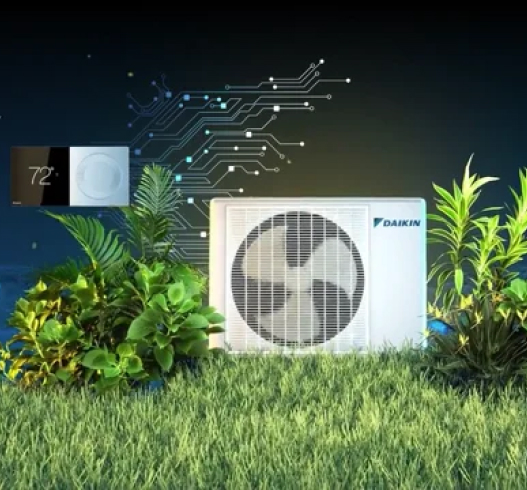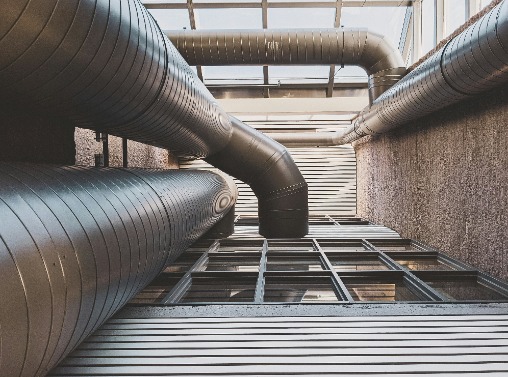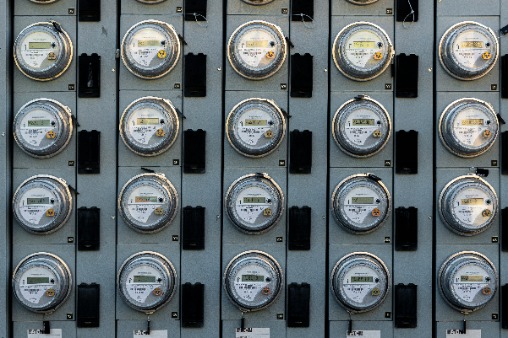What Is HVAC and How Does It Work?

You've probably heard the term HVAC and know that it has something to do with indoor comfort and climate control in your home. Yet, you may not know is what the acronym stands for or how it works to keep you comfortable all year long. Here's a quick intro on this essential part of your home.
What Does HVAC Stand For?
HVAC is an acronym for Heating, Ventilation, and Air Conditioning. Many people refer to it as their "heat" and "AC" but it’s more complex than the individual pieces of equipment. Your HVAC system is designed to keep your home cool when outdoor temperatures soar, and in the winter, it pulls double duty by making sure that your home is warm and cozy. Here's a closer look at each of the three components of HVAC.
Heating
When it comes to selecting a heating system for your home, you have many choices. Most homes will have a "forced air system" with either an oil or gas furnace, or a heat pump system that is designed to generate heat in the winter and cooling in the summer. A ducted heating system circulates heat throughout your home via ductwork. A ductless heat pump is designed to blow warm air directly into a single living space. Yet, with combined with multiple indoor units, a ductless system can heat an entire home.
Other heating systems Include electric baseboard, or steam radiant systems which are not considered "forced air system." These types of heating elements often result In hot spots in the home and do not allow for air filtration or proper ventilation.
Ventilation
Ventilation is the process of replacing stale indoor air to help control temperature and minimize moisture, odors, airborne particulates, and carbon dioxide. The air-tight construction may trap stale air in your home so ensuring proper ventilation is essential for indoor air quality.
According to the U.S General Services Administration Sustainability Facilities tool, “ventilation is one of the most important factors for maintaining acceptable indoor air quality in buildings.”
Air Conditioning
The AC in HVAC stands for air conditioning and is typically comprised of outdoor and indoor equipment. On the outside, the equipment contains a condenser coil, compressor, and a fan. Inside the home includes an evaporator coil and blower. In a package unit, these components are in a single outdoor cabinet.
AC systems are either ducted or ductless, and vary In capacity and efficiencies. Make sure to contact your Daikin Pro to review what system Is right for your home.
How HVAC Works
Now that we know the basic components of an HVAC system, let’s take a closer look at how an HVAC system works.
In the summer, when the air is generally warm and humid, an air conditioner or heat pump is designed to remove heat and humidity from the air in your home and moves it back outside.
The process begins when warm air from your home is pulled into the return duct(s) by a motorized fan, or directly within the ductless indoor unit. This warm air blows over the evaporator coils filled with liquid state refrigerant which absorbs the heat from the air. This cooled air is then circulated back into your home through the supply duct, allowing for optimal indoor comfort.
In the winter, when the air is generally cold across regions, cool air from a home’s interior is pulled into the return ducts by a fan, or on the warm coil of a ductless heat pump indoor unit.
If your home has a gas furnace…
As gas generates heat in the furnace's burner and passes it through to a heat exchanger, air from the home's ductwork is blown over the heat exchanger, warming it. A blower then forces the heated air into the supply ductwork, distributing it throughout the home.
If your home has a heat pump…
A heat pump is designed to switch to heat mode by reversing the refrigeration cycle. This sets the outside coil to function as the evaporator coil, absorbing heat energy from the cold outdoor air, and the indoor coil act as the condenser coil, releasing that heat. When your indoor air is pushed over the inside coil, it is warmed. This heated air is then circulated back into your home through the supply duct, allowing for optimal indoor comfort.
Common Questions About HVAC
What is the difference between AC and HVAC?
The main difference between AC and HVAC is that AC only refers to air conditioning while HVAC refers to the entire heating and cooling system.
Is HVAC electric or gas?
HVAC systems can use either electricity or gas as a power source, depending on your home’s setup. If you aren't sure which energy source your system uses, we recommend checking with a Daikin Comfort Professional before making any changes.
Smart HVAC can also be "dual fuel", where the system operates in heat pump mode when the system is most efficient, then switches to gas for the colder days of the year.
How do you clean your HVAC ducts?
Your home’s HVAC ducts should be cleaned by a professional. Ask a Daikin Comfort Pro to check your ductwork to see if it needs a professional cleaning.
Does homeowner’s insurance cover HVAC?
Every insurance policy is unique. Some homeowner’s insurance policies may cover damage to an HVAC system caused by severe weather or accidents, but it usually does not cover routine maintenance or repairs. Be sure to check the fine print of your homeowner’s insurance policy or contact your insurance agent to understand your HVAC system coverage. For coverage on routine maintenance or repairs, speak with a Daikin Comfort Pro.
In this article
Connect on Social Media
 Follow on Facebook
Follow on Facebook
 Follow on YouTube
Follow on YouTube
 Follow on Instagram
Follow on Instagram
 Follow on X
Follow on X
 Follow on TikTok
Follow on TikTok
 Follow on Pinterest
Follow on Pinterest

Looking for help now?
Enter your zip code to search for Daikin Contractors in your area.
Learn More
Learning Center Content
Stay informed about home comfort technology, when to upgrade, energy efficiency, and reducing your energy bills.





























